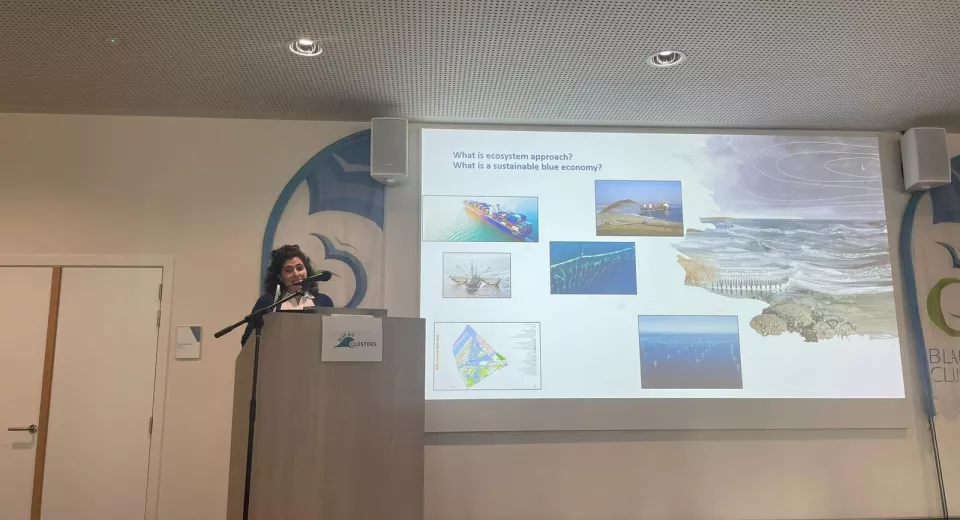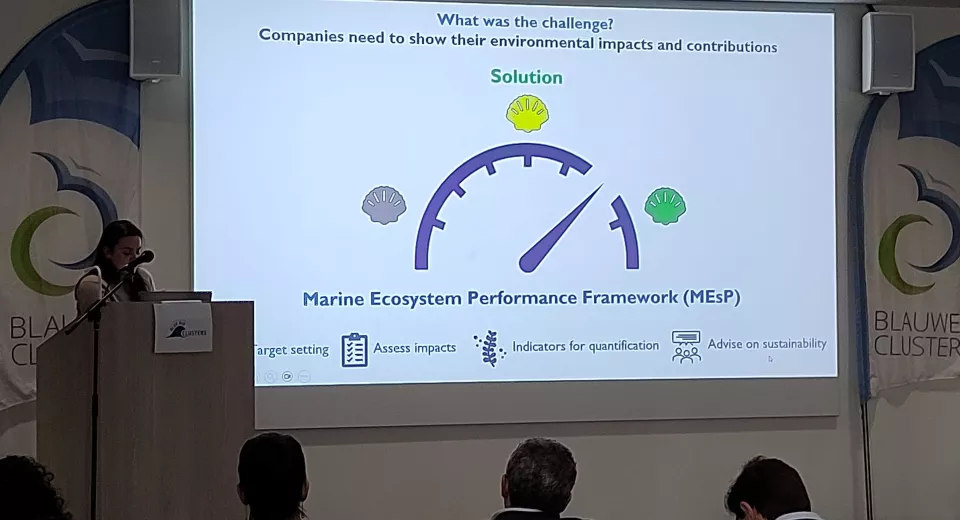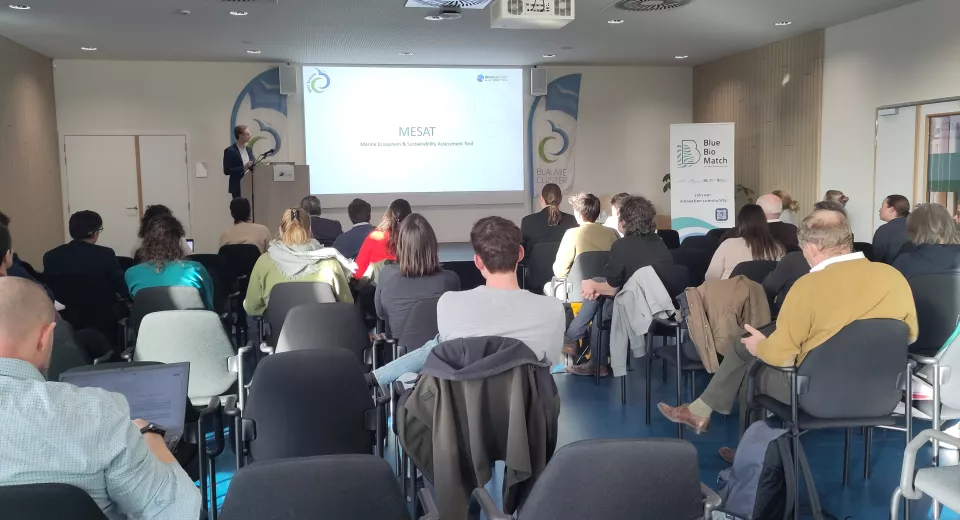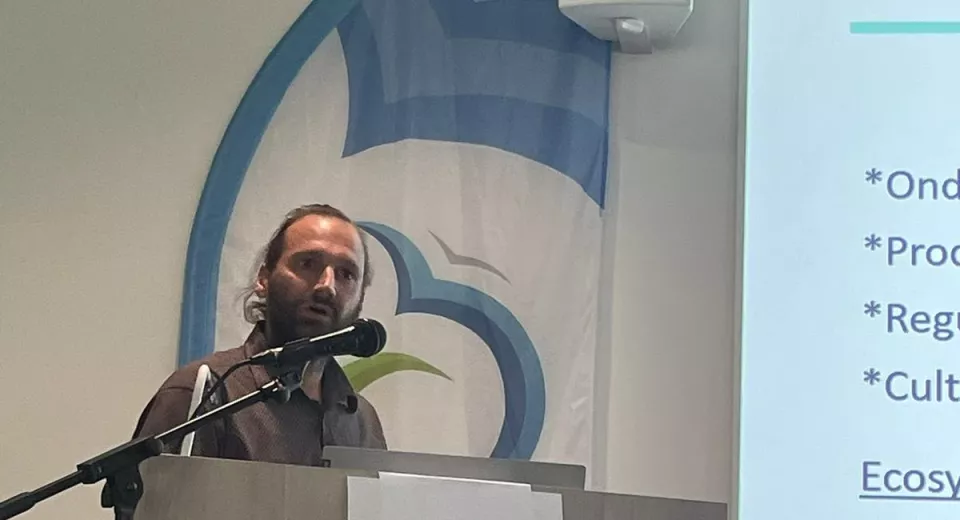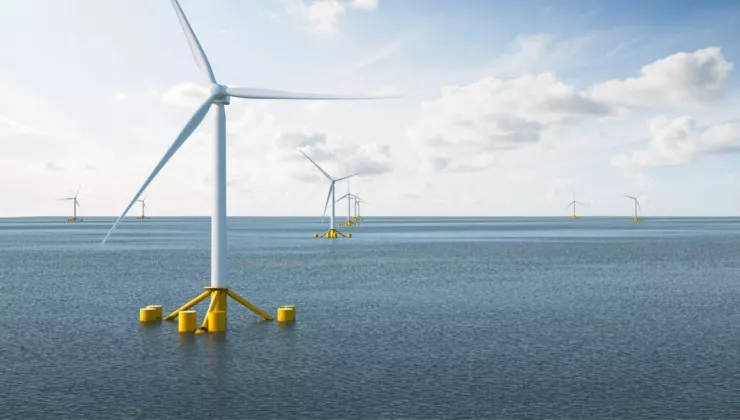Reflections on the Blue Session on Ecosystem Approach
On 1 February, Blue Cluster organised a Blue Session on the topic of Ecosystem Approach. The participants received a brief overview and state of affairs of some projects that focus on this topic, as well as an explanation of the European BlueBioClusters project. This was followed by a panel discussion.
A summary of this fascinating Blue Session can be found below.
Background
In 2021, Blue Cluster published a white paper on ecosystem services and an ecosystem approach within the blue economy, based on input from academics and industry. The ecosystem approach was seen as an interesting tool for entrepreneurs to consider the impact of their activities on the entire marine environment.
However, there was a lack of tools and data to support this approach, and the concept of the ecosystem approach was not yet sufficiently spread and known. The Blue Cluster has therefore urged companies and knowledge institutions to address these gaps. Within this framework, three projects were launched: SUMES, MEsP and WABESCO.
Projects
During the Blue Session, attendees received an explanation and a state of affairs of the SUMES, MEsP and WABESCO projects, and dived into ecosystem awareness in the blue bioeconomy in the context of the European BlueBioClusters project. This was also the first time that these projects were presented to the general public.
The partners in SUMES have developed a scientifically based methodology that can provide insight into the positive or negative effects of economic activities at sea and their potential interactions. The response from the public was encouraging as the methodology was found to be clear and transparent.
MEsP is considered a first attempt at an easy-to-use tool based mainly on spatial data. The developers have pointed out that further research is needed to evolve towards a more data-driven and ready-to-use umbrella system.
The MESAT tool developed within WABESCO is based on the European taxonomy. The partners in the project are busy further refining this tool so that it can be used in a wide variety of marine activities.
Panel discussion
This was followed by a panel discussion with representatives from industry, the financial sector and science. The focus was on the current state of the ecosystem approach and how it can be promoted more broadly within the blue economy. Flanders is a pioneer in implementing the ecosystem approach when assessing the impact of marine activities.
Some notable comments from the panel discussion can be found below:
- The marine ecosystem is one of the largest ecosystems in the world, with an important function as a climate regulator. It is therefore important to make people more aware of the various services provided by this ecosystem.
- It is important not to counteract natural processes, as this would ultimately entail high costs. Therefore, in addition to operational, there are also commercial reasons to work in favor of the marine ecosystem.
- Sustainability in maritime business activities, supported by the ecosystem approach, should be a prerequisite for developing these activities. The government has an important role to play in determining these conditions.
- There is a need for a proactive vision of the marine landscape and the possible ecosystem services. This can lead to a framework that enables us to define which blue activities we should focus on.
Poll
A poll conducted during the Blue Session showed that all parties involved must do their part to achieve an ecosystem approach. Companies can even be the driving force behind this, as entrepreneurs are now much more aware of the problems and the responsibility they can take on.
To support companies in this transition, the government can create a regulatory framework. Furthermore, consumer awareness is very important. It is necessary to communicate with the general public more frequently, so that people become more aware of their livelihood and their environment.
Get in touch!
To expand the topic even further to the European area, we have created a specific working group “ecosystem services and valorziation” on the BlueBioMatch portal to give more attention to the ecosystem approach within the Blue Bioeconomy.

